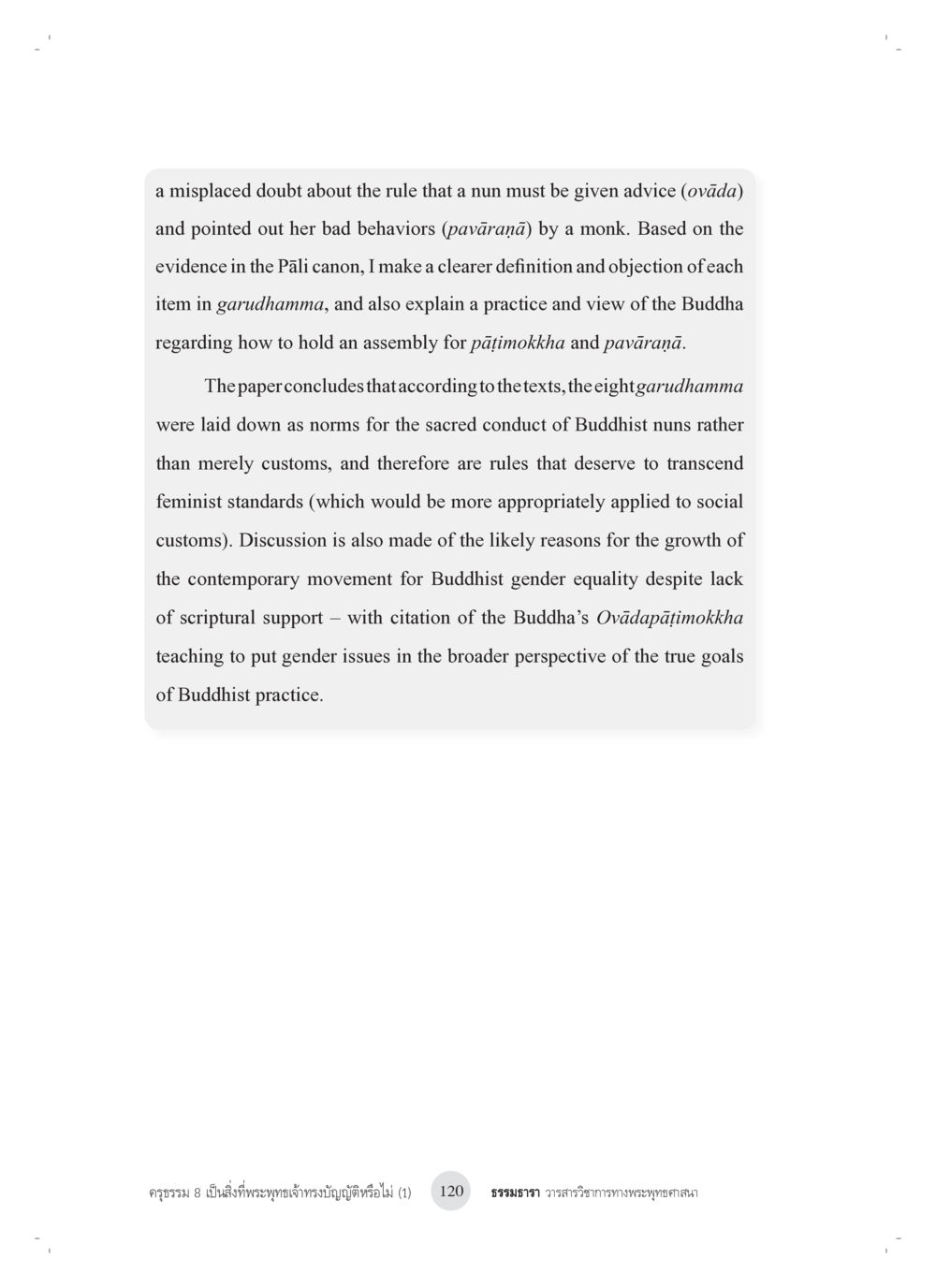The Role of Garudhamma in Buddhist Nuns' Conduct : หน้า 4/39
ครุธรรม 8เป็นสิ่งที่พระพุทธเจ้าทรงบัญญัติหรือไม่ (1) : หน้า 4/39 An analysis of garudhamma and its significance in the conduct of Buddhist nuns, exploring traditional views and contemporary movements for gender equality.
0 ครั้ง

สรุปเนื้อหา
This paper examines the role of garudhamma in guiding the conduct of Buddhist nuns, highlighting their importance as norms rather than customs. It discusses the issues raised by a monk regarding advice to nuns and their behaviors, presents a clear definition of garudhamma based on Pāli texts, and reflects on the history of Buddhist practices concerning gender equality. Despite scriptural limitations, contemporary movements advocating for gender equality within Buddhism are analyzed, situating them within the teachings of the Buddha, particularly the Ovādapātimokkha, which focuses on the ultimate goals of Buddhist practice. For further exploration, please visit dmc.tv.
หัวข้อประเด็น
-garudhamma significance
-Buddhist nuns conduct
-gender equality in Buddhism
-Buddha's teachings on assembly
-contemporary movements in Buddhism







































